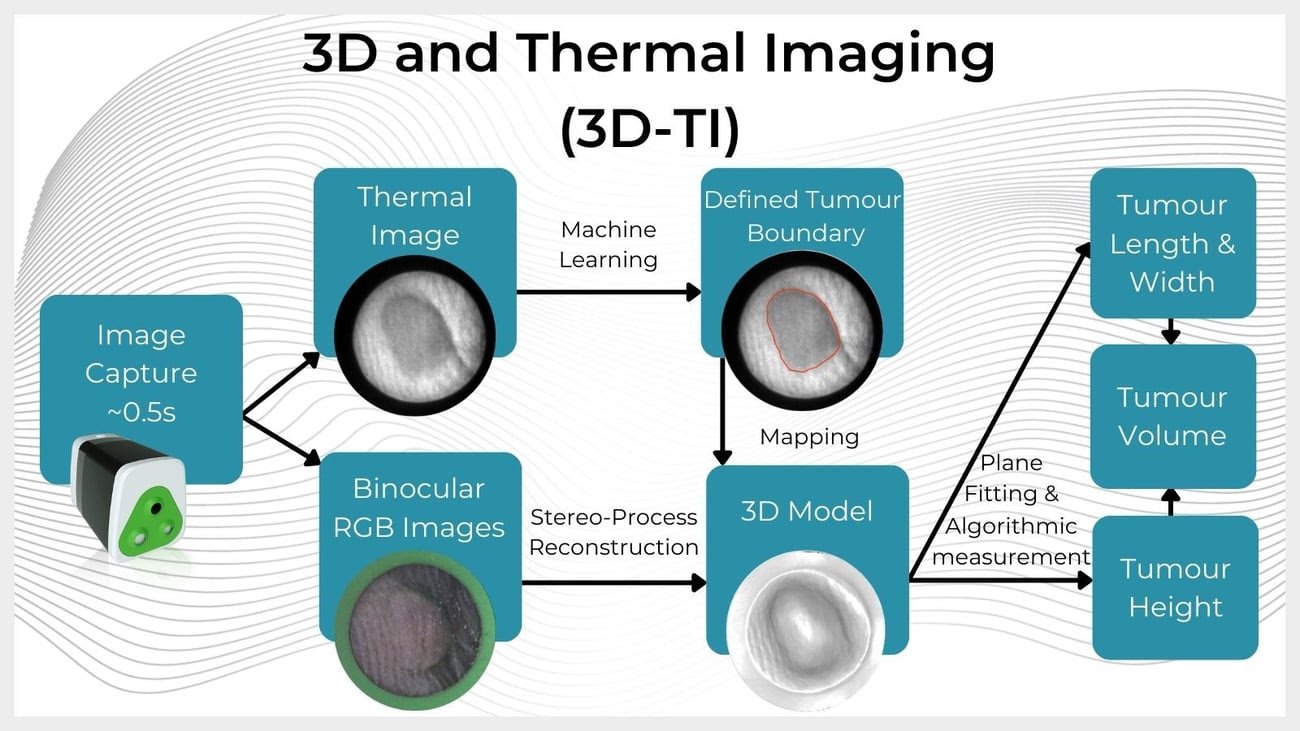TransCure bioServices offers BioVolume 3D imaging for insightful preclinical oncology research
02 February 2023 | Thursday | News
The Humanized Mouse Preclinical CRO provides a new service to study tumor progression in never-before-seen depth

BioVolume accurately and reproducibly measures tumor volume.
TransCure bioServices adds BioVolume 3D imaging to its service offerings, enabling them to deliver even higher quality tumor growth results to customers. With a deeper understanding of how tumors grow and respond to stimuli, researchers can more quickly develop the highly efficacious treatments urgently needed to tackle different cancers. The new service is a world first in 3D imaging, allowing the measurement and visualization of tumor growth in animal models across preclinical research, oncology, and drug development.
Mouse models with subcutaneous tumor xenografts are the most prevalent model used across the globe, enabling researchers to study early tumor progression and treatment response in vivo. The tumor volume provides the most useful data in monitoring these aspects, but traditional measurements can be prone to user error and are invasive, causing discomfort to the mouse.
BioVolume reconstructs tumors from 3D, RGB, and thermal imaging. The solution is non-invasive, using a machine learning algorithm to automatically calculate subcutaneous tumor length, height, and width. The approach also has low user variability, thereby increasing measurement accuracy and enhancing experiment reproducibility. Inclusion of this technology bolsters TransCure bioServices’ extensive technical service offerings for greater success in preclinical oncology research, while also enabling them to uphold their Association for Assessment and Accreditation of Laboratory Animal Care (AAALAC) commitment to improved animal welfare.
"BioVolume technology is a significant leap forward for tumor measurements," says Dr Sébastien Tabruyn, General Manager and Chief Scientific Officer (CSO), TransCure bioServices. "It allows TransCure bioServices to better support our customers with much deeper insight into tumor progression by improving measurement accuracy and inter-operator consistency, driving more reliable results. By combining BioVolume with our existing breadth of high-quality services like flow cytometry and in vitro assays, we can offer scientists the comprehensive data package they need for their preclinical studies to deliver better oncology treatments."
Most Read
- How Does GLP-1 Work?
- Innovations In Magnetic Resonance Imaging Introduced By United Imaging
- Management of Relapsed/Refractory Multiple Myeloma
- 2025 Drug Approvals, Decoded: What Every Biopharma Leader Needs to Know
- BioPharma Manufacturing Resilience: Lessons From Capacity Expansion and Supply Chain Resets from 2025
- APAC Biopharma Review 2025: Innovation, Investment, and Influence on the Global Stage
- Top 25 Biotech Innovations Redefining Health And Planet In 2025
- The New AI Gold Rush: Western Pharma’s Billion-Dollar Bet on Chinese Biotech
- Single-Use Systems Are Rewiring Biopharma Manufacturing
- The State of Biotech and Life Science Jobs in Asia Pacific – 2025
- Asia-Pacific Leads the Charge: Latest Global BioSupplier Technologies of 2025
- Invisible Threats, Visible Risks: How the Nitrosamine Crisis Reshaped Asia’s Pharmaceutical Quality Landscape
Bio Jobs
- Sanofi Turns The Page As Belén Garijo Steps In And Paul Hudson Steps Out
- Global Survey Reveals Nearly 40% of Employees Facing Fertility Challenges Consider Leaving Their Jobs
- BioMed X and AbbVie Begin Global Search for Bold Neuroscience Talent To Decode the Biology of Anhedonia
- Thermo Fisher Expands Bengaluru R&D Centre to Advance Antibody Innovation and Strengthen India’s Life Sciences Ecosystem
- Accord Plasma (Intas Group) Acquires Prothya Biosolutions to Expand Global Plasma Capabilities
- ACG Announces $200 Million Investment to Establish First U.S. Capsule Manufacturing Facility in Atlanta
- AstraZeneca Invests $4.5 Billion to Build Advanced Manufacturing Facility in Virginia, Expanding U.S. Medicine Production
News











